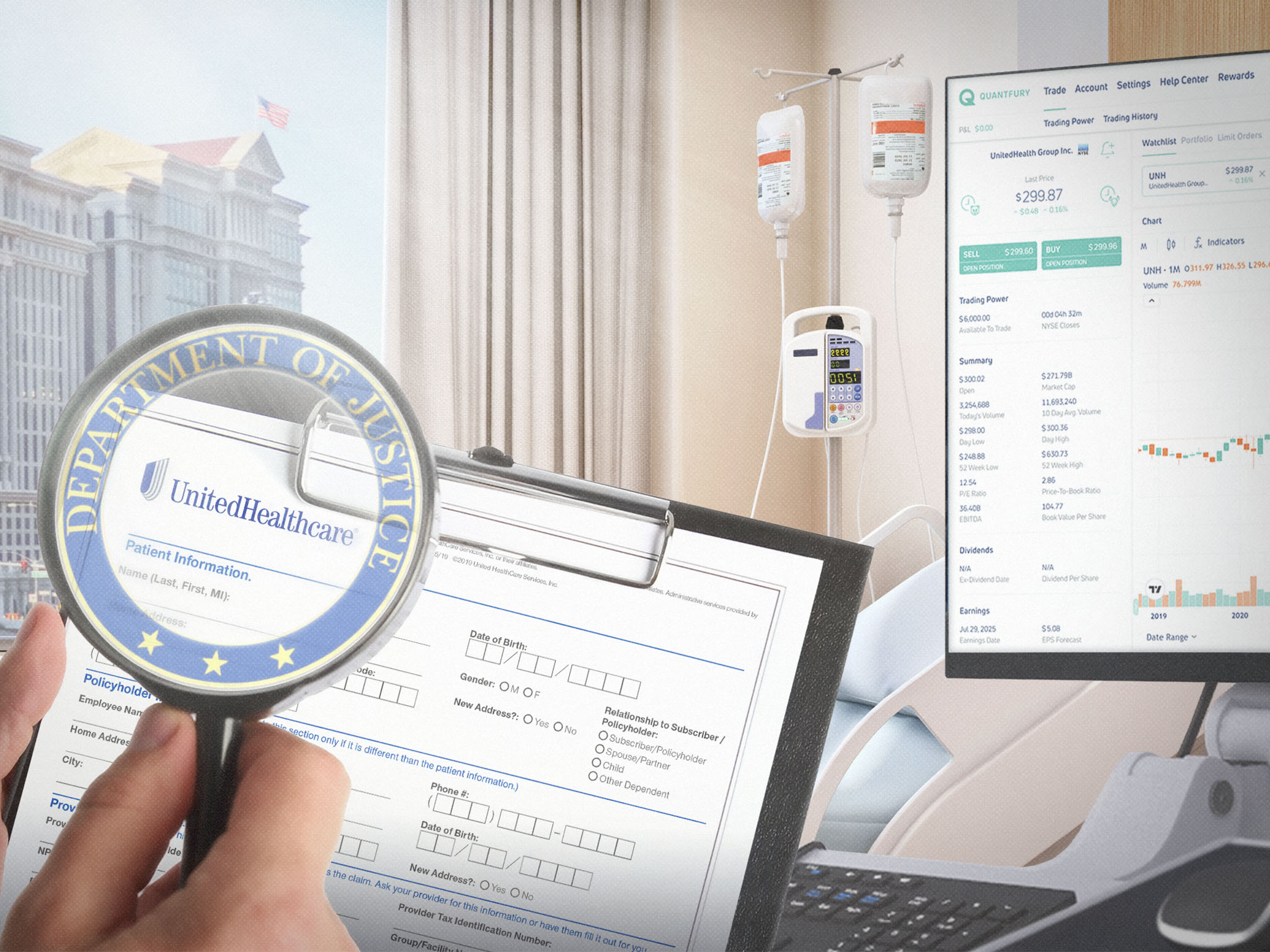UnitedHealth Group’s (NYSE: UNH) problems are compounding as the Department of Justice probes its billing practices for Medicare while investors flee the already troubled company.
The largest healthcare insurer and provider in the U.S. faces a litany of problems ranging from the Justice Department’s review of its planned takeover of a rival home health care company while two ratings agencies downgraded the company’s credit rating.
Shares of UnitedHealth have been on a downward slide, falling by 41.8% during the past six months and a decline of 39.5% during the past year.
The company’s credit rating was downgraded to negative from stable by both Moody’s and S&P Global in June.
Federal investigators are examining whether the health insurance company was allegedly attempting to increase payments from the federal government resulting from diagnoses that produced higher amounts in costs, several sources told the Wall Street Journal.
In May, the WSJ reported that the DOJ’s healthcare fraud unit was scrutinizing UnitedHealth’s Medicare business and was looking at its billing practices starting with last summer. Employees told the WSJ that they were interviewed by the DOJ, FBI and the Department of Health and Human Services’ Office of Inspector General.
UnitedHealth’s CEO Stephen Hemsley said the insurance company plans to examine its current practices, including diagnoses that could result in higher payments at its shareholder meeting in June.
It is unknown when the DOJ will finish its investigation and what impact it could have on UnitedHealth, such as paying a large fine or face any criminal charges.
The company is also fighting the Department of Justice’s November lawsuit against the company’s proposed $3.3 billion acquisition of Amedisys, a home care provider and has faced public scrutiny from the December killing of Brian Thompson, who served as CEO of UnitedHealthcare, the health benefits division.
In May Hemsley, who took over as CEO after the surprise resignation of Andrew Witty. Hemsley had served as the company’s CEO from 2006 to 2017.
In the past, UnitedHealth had relied heavily on buying its rivals to boost its revenue and profit margins.
Whether the company, which has a $274 billion market cap, can continue its previous strategy, remains murky as investors appear to have lost its patience with UnitedHealth. Investors may have opted to place their trust in its competitors such as CVS Health (NYSE: CVS) whose stock has risen by 36.8% in the past six months or even Cigna Group (NYSE: CI) whose shares have risen by 10.5% during the same period.




Comments